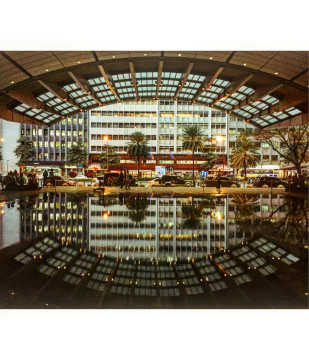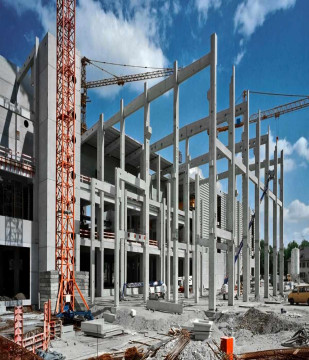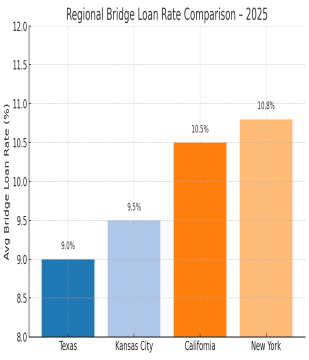Entertainment Assets in Commercial Real Estate

Terrydale Capital
Sep 6, 2024 7 Min read
 Learn
Learn
Entertainment assets are a unique and dynamic class within the commercial real estate sector. These properties provide spaces where people gather for leisure, recreation, and cultural activities. As the demand for experiences continues to rise, entertainment assets are becoming an increasingly attractive investment for those looking to diversify their portfolios.
What Are Entertainment Assets?
Entertainment assets encompass a wide range of venues and facilities that are designed to engage and entertain the public. These assets are generally characterized by their ability to attract large crowds and generate revenue through ticket sales, memberships, concessions, sponsorships, and other revenue streams. Here are some of the primary types of entertainment assets:
- Theaters and Cinemas: These include movie theaters, live performance venues, and concert halls.
- Sports Arenas and Stadiums: Facilities used for professional and amateur sports, concerts, and large-scale events.
- Theme Parks and Amusement Parks: Major destinations offering rides, games, and entertainment experiences.
- Gaming Facilities: Casinos and other gaming venues.
- Bowling Alleys and Arcades: These spaces offer a variety of interactive and social games.
- Concert Venues and Clubs: Smaller venues that host live music or entertainment.
- Cultural Centers and Museums: Places dedicated to showcasing art, history, and culture.
Why Invest in Entertainment Assets?
- Stable and Growing Demand for Experiences The entertainment industry continues to thrive, driven by people’s increasing desire for unique experiences. While e-commerce has transformed retail, the entertainment sector is largely immune to the digital shift, as in-person experiences are irreplaceable. This makes entertainment venues relatively insulated from the kind of disruption that has impacted other asset classes in commercial real estate.
- Diverse Revenue Streams Entertainment assets generate revenue through various channels. In addition to admissions or ticket sales, venues can profit from food and beverage concessions, merchandise sales, parking fees, and exclusive experiences such as VIP packages. The diversification of revenue streams enhances the financial stability of these properties.
- Strong Tenant Demand and Long-Term Leases Many entertainment venues, such as cinemas and casinos, are operated by established companies with significant market presence. These operators often sign long-term leases, providing landlords with consistent rental income. In some cases, entertainment venues may also be owner-operated, meaning investors can benefit directly from the property’s performance.
- High Foot Traffic Entertainment assets tend to draw large numbers of visitors, which can boost the performance of nearby businesses, particularly in mixed-use developments. Properties adjacent to entertainment venues often experience increased demand, making entertainment assets an anchor for broader commercial real estate development.
- Tourism and Destination Appeal Certain entertainment venues, such as theme parks, casinos, or sports stadiums, are significant tourist destinations. This brings in visitors not only from the local community but also from outside the region, adding a layer of revenue potential through tourism. These assets contribute to local economies by driving hotel, restaurant, and retail activity.
- Resilience During Economic Downturns Entertainment venues tend to exhibit resilience even during economic slowdowns. While luxury goods and non-essential retail may suffer, entertainment is often seen as a relatively affordable luxury. Consumers are often willing to spend on experiences that offer social, emotional, or recreational benefits, making these properties more resistant to economic fluctuations.
Factors to Consider Before Investing
- Location: Like most commercial real estate, location is key for entertainment assets. Properties in high-traffic areas with good accessibility tend to perform better.
- Competition: Consider the level of competition in the area. A venue that has a unique offering or that is part of a larger mixed-use development may have an edge over standalone assets.
- CapEx Requirements: Some entertainment assets, such as theme parks and arenas, require significant capital expenditures to maintain and upgrade facilities. Investors should factor this into their analysis of returns.
- Regulatory and Zoning Considerations: Depending on the type of entertainment asset, there may be zoning restrictions, noise ordinances, or special permits required to operate.
Conclusion
Entertainment assets present an exciting opportunity within commercial real estate. These properties are driven by the increasing demand for experiences and provide a wide array of revenue streams, making them a potentially lucrative investment. With their ability to draw large crowds, contribute to local economies, and maintain resilience during economic downturns, entertainment venues are solid options for investors looking to diversify their portfolios. As the trend toward experiential spending continues, entertainment assets are poised to remain a strong performer in the real estate market for years to come. When you need the right team behind your investment, contact us at Terrydale Capital today!
Partner With Terrydale Capital for Your Debt Financing Needs
When it comes to debt financing, understanding the right timing, process, and options is crucial. At Terrydale Capital, we provide a comprehensive range of commercial loan solutions tailored to meet your business's unique needs.

































































































































































































































































































































































